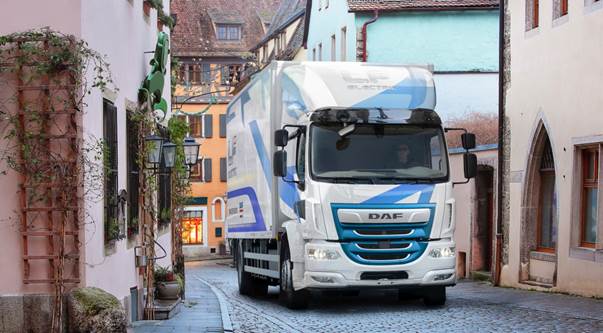– The Dutch government’s efforts to develop the battery ecosystem
– Focused support on the development of rechargeable battery technology
– Public-private partnership for the development of Dutch battery technology
The Netherlands already possesses important competencies in the battery field, including thin film technology, plasma chemistry, and related machine development technology required for the development of next-generation battery cells. In addition, the advantageous logistics advantage as a gateway to Europe and the solid automobile and marine industries are also considered as the basis for the growth of the battery industry.
Meanwhile, from October 2021, companies, research institutes, and industry associations in the Dutch battery sector have gathered together to operate a new Battery Competence Center program. The program includes companies such as DAF Trucks, VDL Group, Damen Shipyards, ELEO Technologies, TNO, research institutes such as Eindhoven University of Technology, and Li The RAI Automotive Industry, Dutch Maritime Technology (NMT), and Brainport Development, a regional economic development agency, are participating.
They focus on the electrification of vehicles and ships, and, together with battery technology, seek to improve the level of application in various heavy equipment and industries. As specific project topics, development and production of battery systems (battery modules and packs), development and production of new battery materials and related production processes and equipment, and realization of recycling were selected. Meanwhile, companies such as DAF Trucks, VDL Group and Damen Shipyards participating in the collaborative program are major players in the mobility sector in the Netherlands. The Dutch government wants to expand economic opportunities for Dutch OEMs and startups, starting at the battery pack assembly stage. .
As the center's first project, members are collaborating to develop prototypes of battery packs for use in vehicles and ships. For example, the VDL Group aims to produce battery packs for VDL vehicles through joint research. The company wants to build a demo production line where the battery packs are separated from the belt. VDL Group's electric mobility expert Menno Kleingeld noted that VDL currently uses battery packs for electric vehicles supplied by its Asian partners. In addition, he noted that assembling vehicle-specific battery packs in-house is important to increase the company's flexibility, and for this, he is using his knowledge in the field of automated series production lines and his experience as a user of these battery packs. Ideally, in addition to their own battery packs, they say they are also thinking about making orders from other companies. Among the companies we are collaborating with is DAF Trucks, the first to introduce pure electric trucks. Daft Trucks already has several versions in its product portfolio. As the demand for electric trucks increases in the future and the development of battery technology is expected to proceed very rapidly, Daft Trucks is developing in the electric truck field by combining the knowledge and experience of other companies, knowledge organizations, and startups through the Battery Competitiveness Reinforcement Center program. It is expected that the company will further strengthen its competitiveness.
<Daft Truck Electric Truck>

[Source: transportlogistiek.nl]
Dutch government's battery competitiveness inspection
In Europe, various business activities are being conducted mainly in Germany and France, he said, attracting large budgets. In this situation, the Dutch Ministry of Economy recently reviewed the international competitiveness of the Netherlands in the battery market through a private consulting company and pointed out promising areas. Based on the study, the Netherlands selected 16 business opportunities with economic potential in the next-generation battery ecosystem.
<Potential growth areas of the Netherlands in the battery market>

[Source: Ministry of Economy Research Report]
According to the report, the Netherlands is particularly competitive in the following high-tech equipment, heavy-duty mobility and recycling sectors.
<Strengths possessed by the Netherlands in relation to batteries>

[Source: Ministry of Economy Research Report]
implication
The use of reusable rechargeable batteries has increased significantly in recent years. In particular, explosive demand for rechargeable batteries is expected by 2040 as electric mobility of bicycles, automobiles, and ships increases and energy storage facilities in buildings increase. In addition, it is estimated that by 2025, the European battery value chain will employ 400 million people and reach 2,500 billion euros in annual sales. In particular, it is expected that 2025 more skilled workers will be needed by 80 to complete all projects of European battery companies.
Accordingly, the Netherlands will focus on the development of rechargeable batteries used for mobility and stationary energy storage and support technology development. Most are likely to be the most advantageous lithium-ion battery type in terms of energy density, power, charging rate, size, and cost.
Battery technology development itself is difficult to develop, and a lot of investment is required in development, testing, and trial production to prove this technology. Currently, in the Netherlands, we are operating research facilities within the Battery Safety Campus Twente, TNO Traffic & Transport at Automotive Campus, TU Delft, and individual companies. have. These research facilities and programs will foster talent development among employees and attract more talent and companies to help shape the battery ecosystem.
Supported by: KOTRA Amsterdam Trade Center Betul Bulut
Sources: rvo.nl, fic.com.tw, mnmks.com, bits-chips.nl, ig.com, oostnl.nl, brainporteindhoven.com, fortadvocaten.nl, Innovationorigins.com, groenezaken.com, wetten.overheid. nl, bd.nl, ad.nl, klimaatakkoord.nl, batterycompetencecenter.nl, europa.eu, unsplash, etc.



